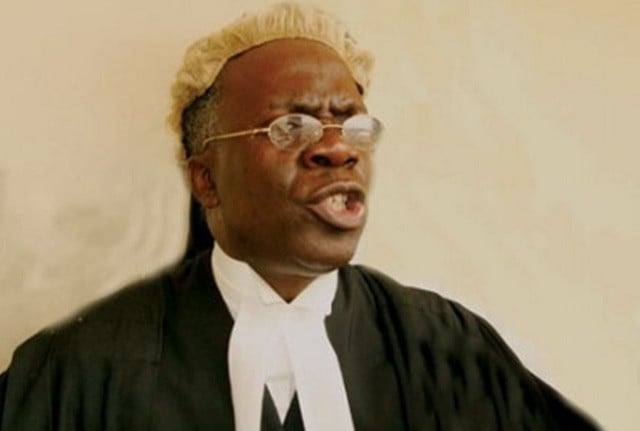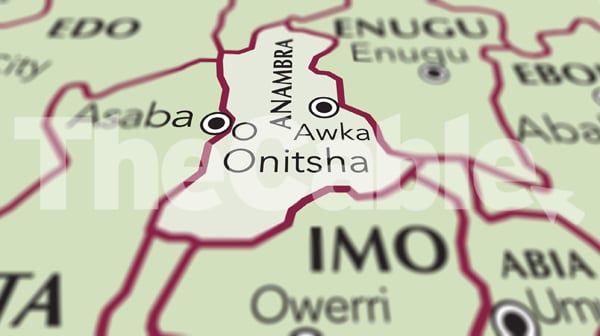Femi Falana, a human rights lawyer, says the federal high court in Kano was wrong to have assumed jurisdiction to hear the case on the emirship dispute in the state.
Aminu Ado Bayero, the deposed Emir of Kano, filed a suit marked FHC/CS/190/2024, challenging his dethronement as emir.
He had anchored the suit on a breach of his fundamental rights.
Delivering judgment on the matter, Simon Amobeda, the presiding judge, held that “the act of the governor of Kano state in directing the police to arrest the applicant without any lawful justification is a threatened breach of the fundamental right to liberty of the applicant guaranteed under section 35(1) of the Constitution of the Federal Republic of Nigeria, 1999 (as altered)”.
Advertisement
The judge restrained security operatives “from arresting, detaining, and harassing the applicant” and ordered the state government to pay Ado Bayero N10 million as damages.
Describing the judgment as “erroneous” in a statement on Tuesday, Falana said the court lacks the jurisdiction to preside over “chieftaincy matters”.
Citing the case of Tukur vs Government of Gongola State (1987) 4 NWLR (117) 517, Falana quoted the supreme court to have said: “The right to be Emir is not guaranteed by the fundamental rights provisions of the constitution and the federal high court has no jurisdiction whatever in the matter.”
Advertisement
Falana also quoted Adolphus Karibi-White, a former justice of the supreme court, to have said in the case of Olaniyi V. Aroyehum (1991) 5 NWLR (Pt. 194) 652 at 660 that “the right to be a traditional ruler is not a fundamental right that can be enforced under the provisions of the Nigerian Constitution”.
“… chieftaincy is not a matter of fundamental rights and cannot be enforced under the provisions of Section 31 of the Constitution. It cannot be seriously argued that there is a fundamental right to be a ‘Chief’. It is not a human right, even though it is a privilege claimed by human beings in an organised society to bring order to their mutual relationships. It is not such a right which the law can enforce by virtue merely of the claimant being a human being,” Falana quoted the judge as saying.
The senior lawyer said: “Since the apex court has said that the right to be an Emir is not a fundamental right under chapter four of the constitution, the federal high court sitting in Kano ought to have declined jurisdiction to continue to entertain the dispute over the chieftaincy matter in Kano.”
“In any case, the allegation of infringement of the fundamental rights of the applicants is an ancillary claim to the substantive reliefs emanating from the deposition and reinstatement of the embattled emirs,” he added.
Advertisement
‘INDUSTRIAL COURT HAS NO JURISDICTION ON CHIEFTAINCY MATTERS’
In addition, Falana also faulted the judgment of the national industrial court in Kaduna, which ordered the reinstatement of Jonathan Zamuna as the chief of Piriga chiefdom in Lere LGA of the state.
The industrial court held that Zamuna’s removal by Nasir el-Rufai, former governor of Kaduna, on May 18, 2023, was “irregular, unfair, null, unconstitutional, and contrary to good conscience”.
But Falana said: “Section 254(C)(1) of the Constitution of the Federal Republic of Nigeria 1999, as amended, has not conferred jurisdiction on the national industrial court to hear and determine chieftaincy matters”.
Advertisement
“Section 254C(1)(k) of the Constitution provides that the national industrial court shall have jurisdiction in matters relating to or connected with a dispute arising from payment or non-payment of salaries, wages, pensions, gratuities, allowances, benefits, and any other entitlement of any employee, worker, political office holder, judicial officer, or any civil or public servant in any part of the federation and matters incidental thereto,” he said.
“The payment of stipend to a traditional ruler by a state government cannot turn him into an employee or a public officer.”
Advertisement
He said the controversy over whether traditional rulers are public officers was laid to rest in the case of John Eze v Okechukwu 2002] 14 SCM 105.
“Since section 277 of the 1979 Constitution and section 318 of the 1999 Constitution are in pari materia, a traditional ruler cannot be said to be a public officer whose removal from office can be challenged at national industrial court,” he added.
Advertisement
‘BAYERO CAN SEEK REDRESS AT STATE HIGH COURT’
Falana said a traditional ruler who was deposed by a governor without a fair hearing can approach the state high court for legal redress.
Advertisement
“But in challenging deposition or removal from the throne, the appropriate court to seek redress is the state high court,” he said.
“In Chief Joseph Odetoye Oyeyemi v Commissioner For Local Govt., Kwara State & Ors. (1992)2 SCNJ 266, the appellant sued the defendant at the Kwara state high court where he challenged the withdrawal of his recognition as the Bale of Oro without affording him the right to make a representation. He won at the high court and lost at the court of appeal.”
He said the decision of the appellate court was later overturned by the supreme court.
“The summary of the existing judicial authorities is that the federal high court lacks the jurisdictional competence to entertain any matter pertaining to the deposition of a traditional ruler unless the complaint is limited to his banishment or detention,” Falana said.
“In conclusion, judges and lawyers should realise that disputes arising from chieftaincy and other local matters are within the exclusive jurisdiction of the high court of each state of the federation, notwithstanding that the country is operating a distorted federal arrangement.”







